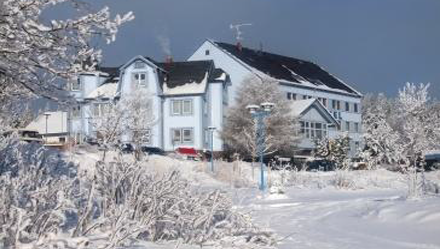Energy efficient modernisation of Russian hotel

Investor
A hotel

Location
Volga region, Russia

Investment
Modern gas boilers, roof and wall insulation, new energy efficient windows and an LED lighting system

Investment Size
$670,000

Financial results
Payback period of 4.9 years; energy costs reduced by 32%; ROI of 20.4%

CO2 savings
107 tonnes of CO2 emissions per year

Impact
Improved comfort for guests and increased profitability

The client is a company operating a small hotel in the Russian countryside. The business was functioning well, but suffered from high energy costs and insufficient comfort in the winter.
The hotel’s management contacted the RuSEFF experts to perform an energy assessment of the building and advise on appropriate energy saving measures. The RuSEFF team performed an energy assessment of the building, checking the energy saving potential, financial-technical parameters and profitability of potential modernisation measures.
The suggested investment project included replacement of old boilers, thermal insulation of the roof and walls, replacement of old wooden windows and installation of an LED lighting system.
The investment of $670,000 resulted in a reduction of energy costs by 32 per cent. The investment will be repaid from energy savings in less than five years and the cost savings can be seen as additional income. In addition, the guests can now enjoy improved conditions and the hotel may expect more bookings and therefore turnover. Finally, the hotel can now be promoted as an environmentally friendly hotel, as the investment led to a reduction of CO2 emissions by 107 tonnes per year.
This project improved the hotel’s appeal and significantly reduced costs. It is a good example of energy efficiency measures in buildings and their financial benefits. The comfort and environmental benefits, however, cannot be measured in monetary terms.
The EBRD, through RuSEFF, supports implementation of sustainable energy projects by the private sector. Together, the private, residential and public sectors can make a change in energy consumption patterns and contribute to environmental protection.



